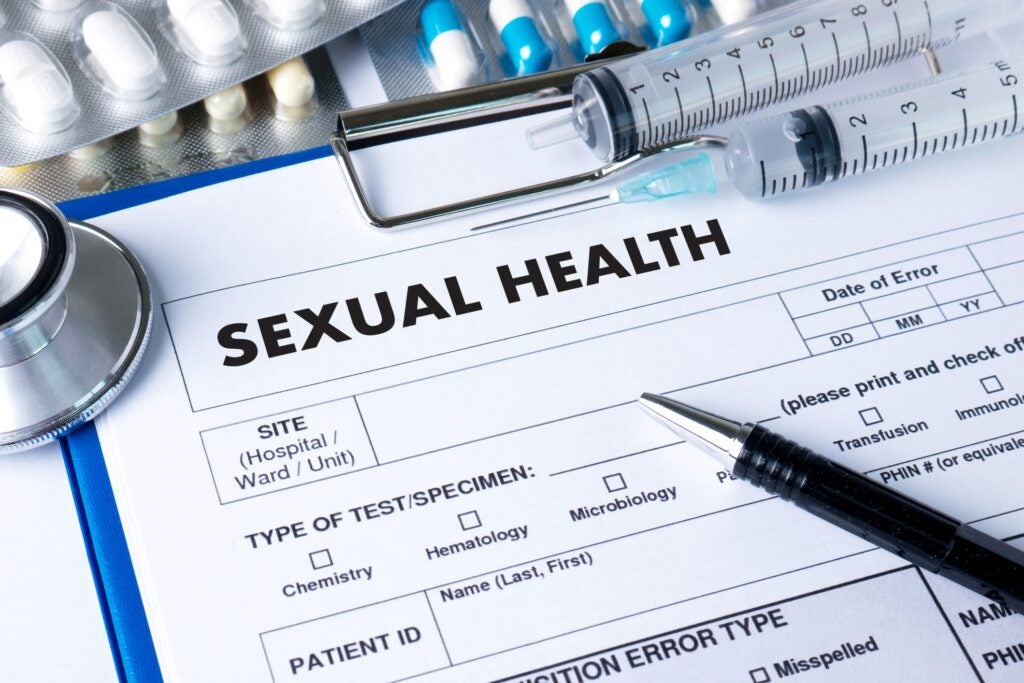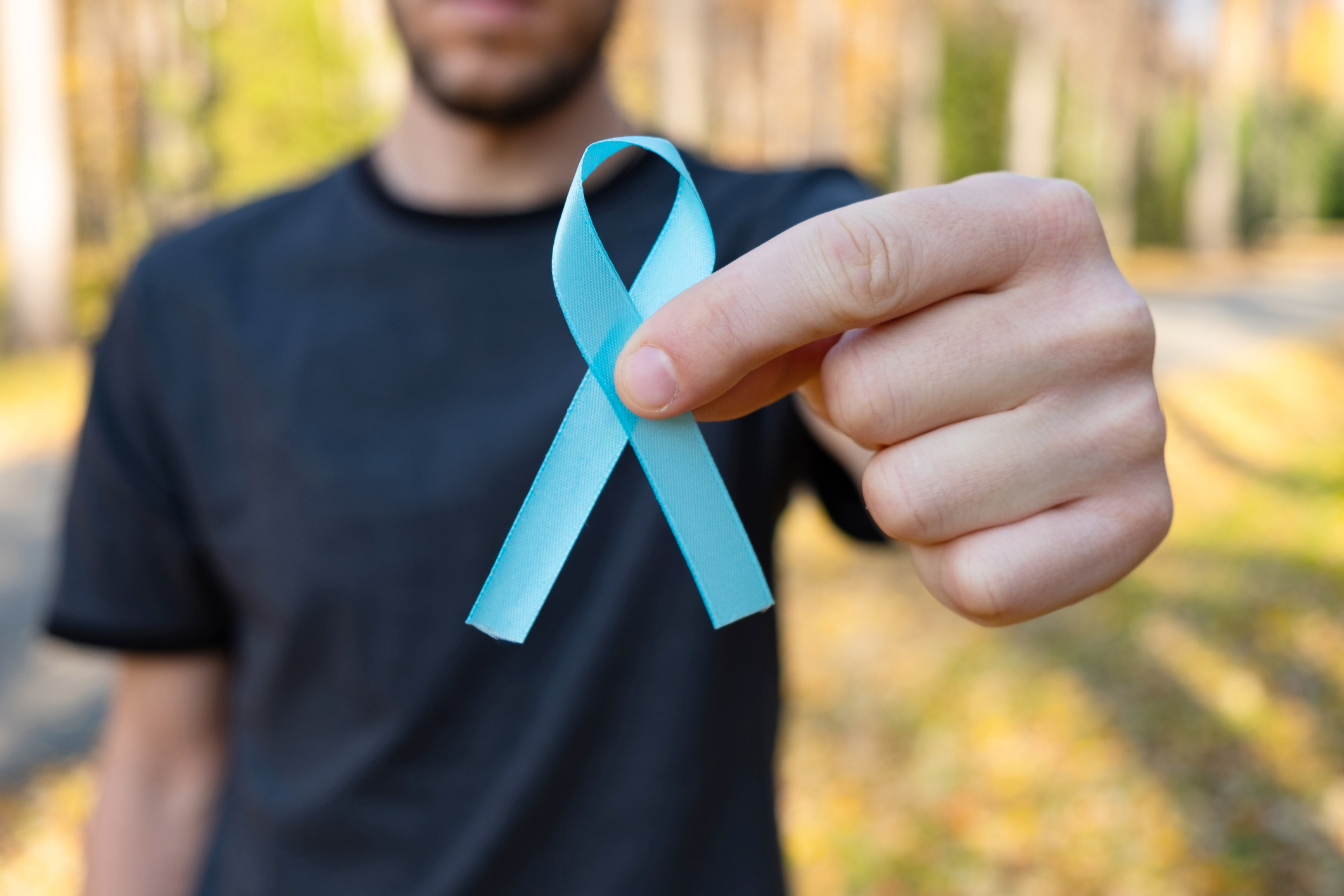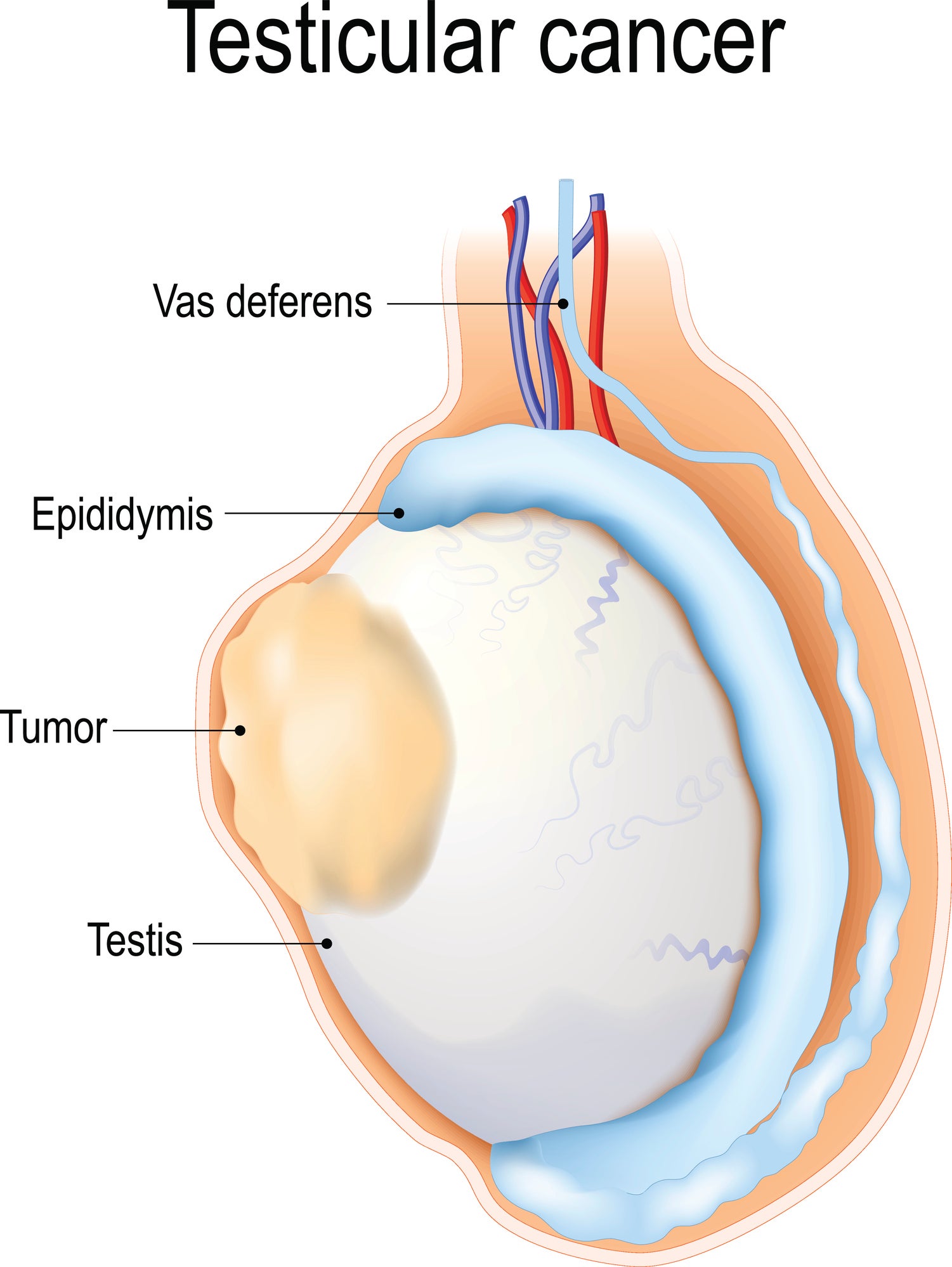-
Can STIs Affect Male Fertility?

SSIs and Fertility
According to the CDC, approximately one in five Americans have an STI. That number may be a low estimate, as some STIs can stay in the body without presenting any symptoms. Left untreated, STIs can negatively impact the fertility of both men and women, even causing long lasting damage to the reproductive system. Fortunately, most STIs can be successfully treated if they are caught early, which is why regular testing is so important. Here, we look at some of the STIs that can affect male fertility.
Chlamydia
The most curable STI, chlamydia is problematic because most people who contract it do not show symptoms. It affects nearly two million Americans each year and has been proven to cause female infertility if left untreated, by damaging the fallopian tubes. It can also be passed to newborn babies, causing inclusion conjunctivitis during a vaginal birth. The connection with male infertility is less clear cut, but there is evidence to suggest that untreated chlamydia can significantly reduce sperm quality and motility.
Herpes
Herpes is an STI without a cure. Symptoms come and go, but the virus stays in the body forever. There is not much research on how herpes impacts male fertility, though one study found that it may be associated with low sperm count. However, if a man passes herpes to his partner and she becomes pregnant, she can pass it to the baby, and this can have serious consequences. Fortunately, while passing it between partners is common, passing it to the infant is rare.
Gonorrhea
Like chlamydia, gonorrhea often presents no symptoms. Both of these illnesses can cause inflammation in the epididymis, the tube at the back of the testicles responsible for storing and transporting sperm. If caught, this inflammation, known as epididymitis, can be successfully treated with antibiotics. However, cases that are left untreated can result in infertility. Gonorrhea is another STI that can be passed on to newborn babies, and this can lead to blindness. Chlamydia and gonorrhea are two major causes of preventable infertility.
Mycoplasma
This STI is not as well-known as the others, perhaps because it was only discovered in 1981. It presents with symptoms that can be confused with a urinary tract infection, but is often accompanied by epididymitis. It is associated with pelvic inflammatory disease (PID) and infertility in women, and there is evidence to suggest it also impacts male fertility.
Syphilis
Many people mistakenly believe that syphilis is a disease that has been eradicated, but this is, unfortunately, untrue. In fact, between 2018 and 2022, reported cases of syphilis in the United States rose by 80 percent, with the CDC documenting 207,255 total cases in 2022. Often, the symptoms are mild, so they can go undetected, but if left untreated, syphilis can last for years or even decades, causing serious health issues. It can impact male fertility by causing erectile dysfunction and epididymitis, and if the man passes it on to his partner and she becomes pregnant, she is at higher risk of miscarriage. Syphilis can also be passed to the baby, and this can be fatal.
Hepatitis
There are several different types of hepatitis, and hepatitis B is the one most commonly linked to sexual transmission. Hepatitis is an inflammation of the liver, and can cause lower sperm count or mobility, resulting in a higher rate of infertility in people with hepatitis than in those without. Adults are typically able to fight off hepatitis, but children infected with this virus often develop a long-term infection that can have serious consequences, including liver cancer and cirrhosis of the liver.
HIV
Human immunodeficiency virus (HIV) is, of course, the virus that can lead to acquired immunodeficiency syndrome (AIDS). There is no cure for either condition, though treatment can control the virus and allow people with HIV to lead long, healthy lives. HIV can impact male fertility in a few ways. First, because it lowers the body’s immunity, it can make a man vulnerable to other STIs that cause fertility issues. There is also research indicating that HIV causes a loss of the cells that develop into sperm, and can cause hypogonadism and low testosterone. The good news is that there are assisted reproduction options to allow people who are HIV positive to successfully and safely have children.
Trust Center for Vasectomy Reversal with Your Fertility
At Center for Vasectomy Reversal, we are committed to men’s health. We pride ourselves on helping men improve their fertility through uncompromising, concierge-level patient care. Under the direction of Dr. Joshua Green, our team provides state-of-the-art treatment for men who need a reversal of their vasectomy or have other fertility concerns. To learn more about the work we do or our discounts for active duty military and veterans, contact us through our website or call 941-894-6428.
-
Vitamins that Can Help with Men’s Reproductive Health
Vitamins that Can Help with Men’s Reproductive Health

Infertility is a frustrating problem, and one that affects about one of every eight couples in the United States. Certain vitamins and supplements have long been recommended for women, but are there any vitamins men can take to improve their odds? Yes, there are a number of nutrients that help support reproductive function in men.
Vitamins and Other Nutrients that Help Both Men and Women
Since we know that certain vitamins are useful in promoting female fertility, let’s take a look at some that also work for men.
- Folate: This important nutrient is found mostly in dark green leafy vegetables, peas, nuts, and beans, as well as oranges, lemons, bananas, melons, and strawberries. Folic acid is the synthetic form of folate, and is in prenatal vitamins and fortified foods because can help boost the chances of conception, and can prevent neural tube defects in the baby.
- Acetyl L-carnitine: This is an acetylated formulation of an amino acid known as L-carnitine, which can help support reproductive function in women and improve sperm motility in men. Acetyl L-carnitine is a supplement, but you can find L-carnitine in meat, poultry, fish, and dairy products.
- Zinc: Low zinc levels have been linked to infertility, and zinc is important for maintaining normal sperm quality and function. For women, adequate zinc improves the time it takes to conceive. You can take zinc supplements, but it’s better to get it from foods like oysters, beef, and pork.
- B Vitamins: B vitamins benefit women’s fertility, and there’s evidence that they can improve sperm quality, boost production, and help with proper DNA synthesis. Take a B complex supplement, or incorporate into your diet some of the many vitamin B rich foods, which include yogurt, trout, shellfish, leafy greens, sunflower seeds, organ meats, beef, and much more.
- Calcium: Adequate calcium in the body can promote fertility in both men and women, boosting sperm production in men. It is easy and healthiest to ingest calcium through the foods you eat, including dairy products, leafy greens, nuts, and seeds.
- Coenzyme Q10: Coenzyme Q10 is produced naturally in the body, but increasing the amount of it in your blood can boost fertility, especially for those undergoing IVF. Research indicates that supplementing with CoQ10 can increase both sperm concentration and motility. Studies have not been as conclusive regarding its impact on women, but it is thought that it can increase ovarian response.
- Vitamin D: Potentially, vitamin D can improve men’s reproductive health. Studies have found a link between vitamin D deficiency and lower testosterone levels. Milk is fortified with vitamin D, and for people who are dairy-free, there is fortified soy milk, as well. Other great sources of this important nutrient include salmon and cremini mushrooms.
- Vitamin E: Vitamin E has been shown to protect sperm against oxidative damage, improving fertility. It can be found in nuts and seeds, fish like trout and salmon, colorful vegetables like butternut squash, red sweet pepper, and turnip greens, and avocado, mango, and kiwi fruit.
- DHA Omega 3s: Mostly found in seafood, DHA Omega-3s help women over 35 become pregnant, and increase sperm motility. If you are not someone who eats seafood, you can get this nutrient from a supplement.
- Selenium: This mineral can reduce the risk of miscarriage, and it can also improve sperm motility and semen quality. The richest sources of selenium include Brazil nuts, seafood, meat, poultry, and organ meats.
Male-Specific Nutrients
Some vitamins and minerals that are not appropriate for women trying to conceive can be extremely beneficial for their male partners.
- Vitamin C: This is another nutrient that reduces oxidative stress, preventing damage to cells. It also improves the absorption of iron, and when taken with vitamin E, it can increase sperm count and mobility. Vitamin C is, of course, found in citrus fruit, but you can also get it from strawberries, blueberries, blackberries, bell peppers, broccoli, cauliflower, and kale.
- Vitamin K: This vitamin helps with blood clotting, helps balance hormones, and supports strong, healthy bones. Vitamin K can be found in leafy greens and fermented foods.
- Vitamin A: Essential for men’s reproductive health, vitamin A helps with sperm production, motility, and quality. It also strengthens the immune system and helps maintain reproductive health. Foods full of vitamin A include carrots, sweet potatoes, leafy greens, fish oils, dairy products, and liver.
- Magnesium: Supplementing with magnesium has been shown to increase testosterone production, improving fertility. Magnesium can be found in spinach, pumpkin seeds, and tuna. Tuna is a great option, because it also contains other beneficial nutrients like omega-3 fatty acids.
For Help with Fertility and Information on Supplements, Trust Center for Vasectomy Reversal
Before adding any supplements to your diet, make sure to speak to a medical professional. Whether you need medical help with fertility or advice on useful lifestyle and dietary changes to improve your reproductive health, the Center for Vasectomy Reversal is here for you. We pride ourselves on helping men improve their fertility through uncompromising, concierge-level patient care. Under the direction of Dr. Joshua Green, our team provides state-of-the-art treatment for men who need a reversal of their vasectomy or have other fertility concerns. To learn more about the work we do or our discounts for active duty military and veterans, contact us through our website or call 941-894-6428.
-
Foods that Help with Penis Blood Flow
The Problem of ED

Occasional trouble getting or maintaining an erection is frustrating, but it is also common, and not usually something to that should cause too much concern. When it is a consistent issue, though, it is known as erectile dysfunction (ED). This can be temporary or chronic, and can be caused by a variety of things, including nerve damage, hormonal issues, lifestyle choices, psychological factors, and some medications. One major reason for erectile issues is insufficient blood flow.
Why Blood Flow Matters
During an erection, blood flow to the penis is increased, as the penile arteries expand. The blood is moved by muscles, into the spongy tissues of the penis, and this is what makes it erect. When there is not enough blood flow, erectile dysfunction can occur, making it difficult to perform sexually. There are medications that treat erectile dysfunction, but there are also natural ways to increase blood flow to the penis. Cutting back on alcohol, managing stress, quitting smoking, getting enough sleep, maintaining a healthy weight, staying well-hydrated, and exercising can all help, and so can eating a nutritious diet.
Foods that Improve Penis Blood Flow
- Asparagus: High in fiber, asparagus is also packed with vitamins and minerals like vitamin C, vitamin K, folate, and potassium, as well as asparagine, a compound that is known to boost the production of sex hormones.
- Avocado: The monounsaturated fats in avocado support cardiovascular health, and they are high in vitamin E, which enhances blood flow and reduces inflammation.
- Beef: Lean cuts of beef provide protein and zinc, important for male fertility. In fact, after oysters, lean beef is the second highest source of zinc.
- Beets: Beets increase nitric oxide levels, which help reduce stress, as well as enhancing erectile function. Nitric oxide works as a relaxant and widens blood vessels, allowing improved blood flow.
- Broccoli: Packed with vitamin C, broccoli boosts immunity, and your overall health is important for your sexual health.
- Brussels Sprouts: Another vitamin C powerhouse, Brussels sprouts improve sperm motility and reduce sperm cells.
- Chicken: A good source of high-quality protein, chicken also has zinc and selenium. Together, these nutrients help with muscle repair and growth and protect cells against oxidative stress.
- Citrus Fruit: Citrus fruits are another great source of vitamin C, which helps not only the immune system but also the circulatory system.
- Chocolate: The compounds in chocolate promote serotonin production, improving mood, enhancing libido, and acting as an aphrodisiac, as well as promoting blood flow to genital tissues. Dark chocolate is the best source of phenethylamine, which triggers the release of endorphins.
- Clams: Clams are full of selenium, a mineral that acts as an antioxidant and protects cells from damage.
- Crabs: Crabs are loaded with zinc, which is a crucial mineral for male fertility.
- Figs: Rich in potassium, which supports cardiovascular health, and amino acids like lysine, valine, and arginine, which are involved in increasing libido.
- Mussels: Trace minerals like zinc and selenium are important for sexual function, and eating mussels is a good way to get them.
- Oats: Full of soluble fiber and complex carbohydrates, oats can help decrease blood pressure, improve blood sugar regulation, and regulate hormones.
- Oysters: Known as an aphrodisiac, oysters are high in zinc, crucial for erectile function.
- Peanuts: Peanuts have protein, fiber, healthy fat, and L-arginine, an amino acid that helps with generating reproductive cells.
- Pine Nuts: Like peanuts, pine nuts are loaded with nutrients, specifically zinc, selenium, and arginine. These promote testosterone production, sperm health, and blood flow.
- Pumpkin Seeds: Pumpkin seeds are another great source of selenium, which is particularly beneficial when combined with vitamin E.
- Salmon: The omega-3 fatty acids in salmon are good for your heart, and good for blood flow to your genitals.
- Spinach: Spinach is a nutritional powerhouse, containing folate, magnesium, and other essential vitamins and minerals. Low levels of folic acid have been linked to ED, and magnesium improves both blood flow and testosterone levels.
- Sweet Potatoes: The potassium in sweet potatoes promotes good vascular and sexual health, improving blood flow all around the body, including the penis.
- Red Wine: In moderation, red wine can help the circulatory system, because it contains antioxidants like resveratrol, which help keep cells healthy. Red wine also contains nitric oxide, which helps dilate blood vessels and increase blood flow.
Help with ED and Infertility
Changing your habits and diet can help, but sometimes professional experience is required. At the Center for Vasectomy Reversal, we pride ourselves on helping men improve their sexual health and fertility through uncompromising, concierge-level patient care. Under the direction of Dr. Joshua Green, our team provides state-of-the-art treatment for men who need a reversal of their vasectomy or have other fertility concerns. To learn more about the work we do or our discounts for active duty military and veterans, contact us through our website or call 941-894-6428.
-
Improving your health for 2024

Father running on beach to improve his health.
Looking Forward
It’s that time of year again, when we begin to set goals for the new year. In 2024, we encourage you to set goals that will lead to a healthier, happier you! It doesn’t have to be anything major, because small, consistent modifications can make a big difference in your health. Here, we offer suggestions for goals that can improve your health in 2024.
Focus on Nutrition
Balanced nutrition is important for every system of your body. Fill your diet with nutrient-dense foods like fruits, vegetables, lean proteins, and whole grains, and limit your intake of processed foods, sugary snacks and beverages, and unhealthy fats. Calcium is important for both men and women, to avoid bone loss in later life, so look for good sources of calcium, like dairy products, sardines, leafy greens, and calcium-fortified beverages. Vitamin D helps the body absorb calcium, and you can get Vitamin D from foods like fatty fish and egg yolks, through supplements, and by getting sunlight. Make sure you take in healthy fats, found in olive and canola oils, avocados, walnuts, flaxseeds, almonds, and fatty fish. In addition to being mindful of what you eat, practice mindful eating, eating without distractions and taking the time to savor every mouthful. Finally, stay properly hydrated, to promote proper digestion, circulation, temperature regulation, and overall wellness.
Get Regular Exercise
Make it your goal to be physically active most days, getting at least two to three hours of exercise over the course of the week. Walking, jogging, biking, and strength training are all good forms of exercise, but look for something that resonates with you, whether that’s yoga, dancing, hiking, or some other fun kind of exercise. Make sure to get a variety of exercise, including exercises that promote cardiovascular health, flexibility, balance, and strength.
Get Quality Sleep
Sleeping well is crucial to your well-being. Aim for seven to nine hours each night, to support your physical and mental health, and make your bedroom a sleep-friendly environment, without screens, light, or distractions. Avoid stimulants in the afternoon and evening, limit your screen time for at least an hour before bedtime, and create a bedtime routine that promotes relaxation and helps you settle down for the night.
Manage Your Stress
No matter how well you eat, and how much you exercise, if you don’t manage your stress properly, your health will suffer. Practices like meditation, mindfulness, yoga, and deep breathing can all help you reduce stress. Additionally, making time to do things you enjoy with your favorite people is a great way to alleviate stress and improve your sense of wellbeing.
Prioritize Your Mental Health
Caring for your mental health is just as important as tending to your physical wellbeing. Focus on self-care, participate in activities that improve your peace of mind, and pay attention to your mental health with a willingness to seek professional health if necessary.
See Your Doctor
Prioritize your annual checkup. Beyond that, keep up with vaccinations, screenings, and recommended healthcare measures. Keep on top of preventive medical care measures, so that you can stay in good shape, with no nasty surprises that disrupt your health.
Build Healthy Relationships
Good relationships can help form the foundation of your overall wellbeing. Being connected to family and friends helps you avoid feelings of isolation and loneliness, and gives you the support you need to weather difficult times. Surround yourself with uplifting, inspiring people with good attitudes, to help keep yourself in good spirits. Healthy relationships are important for resilience, happiness, and a fulfilled life.
Center for Vasectomy Reversal Cares About Men’s Health
At the Center for Vasectomy Reversal, men’s health is our priority. We pride ourselves on helping men improve their health and fertility through uncompromising, concierge-level patient care. Under the direction of Dr. Joshua Green, our team provides state-of-the-art treatment for men who need a reversal of their vasectomy or have other fertility concerns. To learn more, contact us through our website or call 941-894-6428.
-
Navigating Male Fertility Challenges as a Couple

Couple discussing fertility issues.
Infertility is a Shared Problem
About one in six couples globally struggles with infertility. While this is often considered a female issue, approximately 40 percent of infertility cases in the United States are connected with male infertility, making it, most definitely, a couple’s issue. While both partners experience emotional distress and relationship stress, the perceived social stigma regarding male infertility and, indeed, male emotional response to infertility, make it challenging for men to find support. Here, we offer advice for couples navigating male fertility challenges.
Men Have Feelings Too
Let’s just start by stating the obvious. Boys and men are conditioned by society to avoid vulnerability, hide their feelings, and be strong, no matter what, but that doesn’t mean their feelings don’t matter. Infertility and pregnancy loss are very painful experiences, and can deeply affect a person’s mental health. It can be hard to process this very private kind of trauma, but infertility is definitely painful. Feelings men experience as a result of infertility can include:
- A deep sense of loss and grief can accompany the knowledge of an inability to conceive a child.
- Guilt and shame can result from not living up to societal expectations of virility and fertility.
- Men sometimes experience a sense of inadequacy, feeling they’ve failed their partner.
- It can feel isolating to experience infertility, and men feeling the pressure to be strong and stoic may not feel able to ask for support.
- Anger and frustration are natural when dealing with infertility, especially because it’s easy to feel powerless when faced with failed attempts, the inability to find a specific reason for infertility, or seemingly endless fertility treatments.
- Anxiety and depression are common for both partners experiencing infertility, as financial strain mounts, disappointments recur, and the future seems uncertain.
Navigating Infertility as a Couple
While men may have difficulty expressing their emotions, and may feel the need to be strong for their partners, the truth is that infertility is a shared concern. Like many things in a partnership, it is best addressed together, working as a team. How can you work together to overcome the mental and emotional challenges of infertility?
- Talk about it. Communication is important in a relationship, and it is crucial during challenging times or periods of stress. It can be hard to talk about difficult topics, but if you can start out with talking about thoughts it can be easier to segue into talking about emotions, too. Make sure that each partner is spending equal time listening and being heard, be honest with each other, and keep it a safe space, where you can each express difficult thoughts and emotions without judgement. Make sure not to rush these conversations, but carve out time for each other and really listen.
- Don’t neglect other aspects of your life. Infertility can feel all-consuming, but it’s important not to let it overwhelm your life. Make time for fun, go out on dates, play games, and spend time with friends and family. Take time out from fertility drama and make sure that other parts of your life don’t fall by the wayside. Spending light-hearted time together can help alleviate the stress you’re experiencing.
- Learn as a couple. There are plenty of resources for those experiencing infertility, but there is also plenty of misinformation floating around. It is important to know how to separate fact from fiction, and to educate yourselves together. It can be hard to find good resources, which is why it is so important to contact a fertility specialist to help you identify solutions that are good options for you.
- Share responsibilities. Make infertility treatment a team effort. Keeping up with all the medical appointments, medication, and bills can be overwhelming, but it’s less so when you’re both shouldering the responsibility.
- Have clear boundaries. Talk to your partner more than you talk to other people. If you are going to share information with friends of family members, make sure your partner is on board with it before you do it. It is important to have support, but it’s also important to protect your partner’s privacy.
- Seek outside support. While you need clear boundaries, you also need a safe space to share what is happening. Joining a fertility support group where you can interact with others who understand what you’re going through, can be a good way to keep from feeling isolated. Support groups can be in-person or online, and they offer a safe, friendly environment in which to discuss difficult topics.
- Don’t equate infertility with failure. Whether or not you conceive, it doesn’t change who you are as a couple. Fertility is not a reflection on your relationship, and infertility is just one of the challenges you will face in your life together. By keeping communication strong, you can also strengthen your relationship and more easily navigate future challenges.
How Men Can Protect their Mental Health
- Express your emotions. Don’t feel you always have to be strong and stoic. Talk to your partner and find others to talk to as well, who will listen supportively.
- Distract yourself. Plan a weekend getaway, go hiking, take a trip, or just go out to dinner at a new restaurant. You and your partner need things to do that don’t have anything to do with fertility.
- Find support. Whether it’s a support group, a counselor, or a trusted friend or family member, think about who you want to turn to when things are tough. Make a list for yourself of people you can call when you need support.
- Manage stress. Maybe it’s engaging in hobbies you enjoy, or maybe it’s meditation or listening to music. Whatever helps you feel less anxious, more grounded, and happier is good for managing your stress.
- Remember who you are. Infertility doesn’t define you, and it doesn’t define your relationship. Look at old photos, reminisce with your partner, embrace new hobbies, and remind yourself that infertility is just something you’re going through, and not who you are.
Seek Help From Fertility Experts
If you are having trouble conceiving a child, help is available to you. At the Center for Vasectomy Reversal, we pride ourselves on helping men improve their fertility through uncompromising, concierge-level patient care. Under the direction of Dr. Joshua Green, our team provides state-of-the-art treatment for men who need a reversal of their vasectomy or have other fertility concerns. To learn more, contact us through our website or call 941-894-6428.
-
Prostate Health Month

Prostate Cancer Awareness
September is Prostate Cancer Awareness Month
About one in 9 men in the United States will be diagnosed with prostate cancer during his lifetime, making it the second most common cancer, after skin cancer. Like many cancers, though, it can be treated successfully if detected early. In September, Prostate Cancer Awareness Month, and November, Men’s Health Awareness Month, we want to spread awareness to help men take better care of their health.
Prostate Screenings are Important
Men often get a little bit nervous about prostate exams, because the doctor must perform a digital rectal exam (DRE). This involves inserting a gloved finger into the rectum to feel the prostate’s surface, as well as examining the lower rectum and assessing the function of the anal sphincter. These exams are necessary, though, and people assigned male at birth should start having them around age 45 or 50, depending on their level of risk. In addition to the DRE, a prostate screening involves a PSA blood test, which measures the level of prostate-specific antigen in the blood.
What to Expect from a Prostate Exam
You don’t have to do much to prepare before a prostate exam, but you should let your doctor know if you have any issues like hemorrhoids, anal tears, or anal fissures. You’ll also need to abstain from sex for 48 hours before the exam, because ejaculation can cause your PSA levels to temporarily increase, and this can affect the test results. You don’t need to change your bathroom habits or be nervous if you haven’t defecated, because your doctor is used to this type of exam.
Doctors perform the two different types of screenings because, while a PSA blood test is very effective for detecting prostate cancer, the DRE can find cancer in people with normal PSA levels. During the DRE, your doctor will feel for lumps and bumps on the back portion of the prostate, where many cancers start. This exam only takes a few seconds, and while it may be uncomfortable, it’s not usually painful. The PSA is just a simple blood draw, sent to the lab for analysis. It only takes about a day to get the results, and if the PSA level is high, you may need further testing to diagnose prostate cancer, like a prostate biopsy, MRI, or other lab tests.
A Healthy Lifestyle can Help Protect Your Prostate
Prostate screenings are important for protecting your prostate health, because prostate cancer doesn’t always cause symptoms. They’re not the only measure you can take to keep your prostate healthy. Following these healthy living tips will help not only with your prostate health, but also with your overall well-being.
- Watch your weight. Prostate cancer is just one of the many health issues linked to obesity.
- Eat your veggies. Vegetables, especially dark, leafy greens, are important for prostate health. The vitamins and minerals found in foods like Romaine lettuce, spinach, kale, and broccoli are vital for a healthy prostate.
- Cut back on red meat. Heavy consumption of red meat can increase your risk of prostate cancer, but eating it on special occasions only will reduce your risk.
- Understand your risk. Talk to your doctor about your risk level; high risk groups include African Americans, those of Scandinavian descent, and people with a family history of prostate cancer.
- Get regular exercise. Exercising for 30 minutes a day at a moderate pace can have a preventive effect on many health issues, including prostate health.
- Drink plenty of water. The recommended amount of water for proper hydration is at least eight cups of water daily, and more if it’s hot or you’re very active.
- Manage your stress. Long-term stress weakens the immune system and alters your hormonal balance, increasing your risk of disease. Strategies like mindfulness and meditation can help with stress management.
- Don’t smoke. Smoking causes carbon monoxide to attack your red blood cells, increasing your risk of prostate cancer and other diseases. If you are having trouble quitting, talk to your doctor.
Center for Vasectomy Reversal Cares About Men’s Health
At the Center for Vasectomy Reversal, men’s health is our priority. We pride ourselves on helping men improve their health and fertility through uncompromising, concierge-level patient care. Under the direction of Dr. Joshua Green, our team provides state-of-the-art treatment for men who need a reversal of their vasectomy or have other fertility concerns. To learn more, contact us through our website or call 941-894-6428.
-
Can Certain Medications Affect Your Sperm Health?

Man rethinking taking medication.
Often, infertility is assumed to be a woman’s problem. However, male infertility is also significant, and sperm quality can heavily impact the chances of conception. Many factors can affect male fertility, including excess weight, cigarette smoking, excessive drinking, and use of recreational drugs. While all of these factors are commonly known, what is less well known is that certain medication can interfere with male fertility.
How can medications affect a man’s fertility? Often, medication will decrease the production of sperm, but in some cases, medications will affect the function of the sperm itself. Decreased production leads to low sperm count, which means fewer sperm will be available to fertilize an egg. If a medication impacts the motility of the sperm, that means the sperm won’t move as efficiently and will have difficulty reaching the egg. Generally, once a man stops taking medication, it takes at least two or three months for his sperm to recover, since it takes that long for sperm to form and mature. With certain medications, however, it can take months or years for fertility to return to normal, and it might not return at all.
So, what types of medications have a negative impact on sperm? Over-the-counter medication does not usually cause an issue, as long as it’s taken correctly and in the proper dosage. However, it’s important to be cautious when you’re trying to conceive, so it’s wise to discuss any OTC medications with your doctor. Certain OTC medicines warrant particular caution:
- Non-steroidal anti-inflammatory drugs (NSAIDs) sometimes reduce fertility. According to a recent study, men taking 1,200 mg of ibuprofen daily can develop a hormonal condition that causes a problem, especially if the man is older. What was not made clear in the study is whether lower doses of ibuprofen can have the same effect. Additionally, while the effects are reversible when the medication is taken for short periods of time, it’s unclear whether they’re reversible if taken long-term.
- Natural or herbal remedies can cause problems for men trying to conceive. Because herbal remedies are not held to the same regulatory standards as medications, it’s better to stay away from them to protect fertility. Supplements that contain testosterone can be particularly problematic, so avoid anything that uses terms like “male enhancement,” “andro booster,” or “T-booster.”
There are prescription medications that can have a significant impact on fertility.
- Steroids and testosterone therapy can have a strong negative impact on sperm production. In fact, testosterone supplements will completely stop sperm production. Whether the man is taking anabolic steroids, herbal supplements with testosterone, or a prescription testosterone replacement from the doctor, the effect is the same. Testosterone blocks the body’s natural hormonal signals that cause the testicles to make sperm. The result is that the semen will either have a very low concentration of sperm or will have no sperm at all. This effect is reversible, but it takes a long time for the sperm to recover. In fact, it can take six to 12 months for sperm count to get back to normal.
- Chemotherapy can wipe out your sperm count. This is because chemo works by killing rapidly dividing cells, like cancer cells, but also, unfortunately, sperm cells. After cancer treatment, it’s common for men to have no sperm in the semen. However, natural fertility can return one to five years after the treatment is discontinued. If you’ve been through chemo, it’s best to wait at least two years before attempting to conceive. For some people, though, fertility never recovers. If you are about to start chemotherapy, talk to your doctor about freezing your sperm for later use.
- Blood pressure medications can decrease semen volume, sperm concentration, and sperm motility. These medications, especially calcium channel blockers, can also cause decreased libido and erectile dysfunction.
- Opioids can interfere with sexual performance and fertility. Long-term use, in particular, can disrupt the signals that control testosterone production. If you’ve only used opioids short-term, as for the treatment of a broken bone or when recovering from surgery, you may not need to worry.
- Antidepressants can cause a drop in libido and may negatively affect sperm production. Selective serotonin re-uptake inhibitors (SSRIs) are the most common medications used to treat depression and anxiety, and they can hinder your chances of conception. However, there are other medications your doctor or mental health provider can prescribe that won’t have the same impact.
- Other medications may be problematic if you’re trying to conceive. Antibiotics can interfere with testosterone and sperm production, especially an antifungal antibiotic called Ketoconazole. Biologics, used to treat autoimmune disorders, can reduce sperm count, and alpha-blockers, prescribed to treat the symptoms caused by an enlarged prostate, can inhibit ejaculation. 5-alpha-reductase inhibitors like Propecia® and Avodart®, used for hair loss and prostate enlargement treatment, can make it hard to conceive, but the effect goes away when you stop taking them. Anti-epilepsy medications, antiretrovirals, blood pressure medications, and some other medications can also cause fertility problems.
At the Center for Vasectomy Reversal, we are concerned with every aspect of men’s health, and we pride ourselves on helping men improve their fertility through uncompromising, concierge-level patient care. Under the direction of Dr. Joshua Green, our team provides state-of-the-art treatment for men who need a reversal of their vasectomy or have other fertility concerns. To learn more, contact us through our website or call 941-894-6428.
-
Can getting kicked in the testicles affect fertility?

It’s a joke in Hollywood movies and a staple of America’s Funniest Home Videos, but if it happens to you, you’re unlikely to find it funny. Getting kicked or hit in the testicles can hurt badly, and if it’s significant enough, it can lead to complications that include sexual dysfunction, urological problems, low testosterone, and even infertility. Let’s look at why testicles are so sensitive, and how to know if your injury is serious enough for concern.
The testicles are vulnerable to injury because they hang outside of the body. These two, small, egg-shaped organs are contained in the scrotum, and having them outside the body keeps them 2 degrees lower than the rest of the body, the ideal temperature for sperm production. While that’s great news for sperm production, it means there are no muscles or bones protecting the testicles from blunt force trauma or penetrating injuries. Blunt trauma, resulting from being kicked or struck by an object, makes up 85 percent of testicular injuries. Penetrating injuries, which happen when something like a knife or bullet pierces the skin, makes up the other 15 percent. Vehicular accidents, bicycle collisions, animal bites, and machinery accidents are all sources of testicular injury.
If you suffer an injury to your testicles, you may experience a contusion, which involves swelling, bleeding, or bruising, cause by damage to the blood vessels. There are also other, more serious types of injuries. Testicular torsion happens when the spermatic cord inside the testicle is twisted, and this leads to tissue death. A rupture or fracture is a tear in the testicle covering, while a degloving means the scrotum skin has been torn away from the testicles. Your testicle may be forced out of position, which is called a dislocation, or it could be detached from the body.
No matter what kind of injury your testicles sustain, it’s going to hurt intensely, and that pain will probably last at least an hour. That’s because the genital area is packed full of nerve endings, so it is much more sensitive than areas of the body where the nerves are spread out more. You will probably feel referred pain in your stomach, because there are shared nerves and tissues between the abdomen and scrotum. To get over the pain, you may need to lie down, apply a cold compress, and take an over the counter pain reliever. Wearing supportive underwear can help because it limits movement.
If the pain lasts more than an hour, you should probably head to the emergency room. Bruising, fever, persistent nausea, difficulty urinating, or blood in the urine are also symptoms that necessitate emergency medical care. These symptoms could mean that enough damage has happened to impact your fertility. Testicular torsion and rupture are both conditions that require surgery to repair them, and if you get medical treatment quickly enough, normal function can be restored.
If the damage is not repaired in time, or there is damage to the epididymis that causes testicular shrinkage, it can impact your fertility. There is also a type of infection which may go undetected until days after the injury. Left untreated, it can cause the epididymis to be unable to store and carry sperm. Scar tissue from an injury may cause a reduction in sperm production. In other cases, a testicular injury can affect hormone production, making it difficult to maintain an erection or conceive a child. It’s always important to get a testicular injury checked out if you think it might be severe, so that you can protect your fertility.
At the Center for Vasectomy Reversal, we pride ourselves on helping men improve their fertility through uncompromising, concierge-level patient care. Under the direction of Dr. Joshua Green, our team provides state-of-the-art treatment for men who need a reversal of their vasectomy or have other fertility concerns. To learn more, contact us through our website or call 941-894-6428.
-
How to Prevent Burnout as a Father

When you are a parent, it seems there’s always something you need to be doing. Whether you’re working at your job or working at home, it seems like there’s always pressure to do more. Sometimes, men fail to take care of themselves, and this can cause a dad to experience burnout. Burnout is an actual condition, and it’s been especially prevalent since the onset of the pandemic. Left unchecked, it can wreck your health, your marriage, and your friendships. How can you prevent this? Recognize that self-care doesn’t necessarily mean pampering, but it does mean taking care of yourself, so you’ll be strong enough to take care of others. Here are some tips for avoiding burnout.
- Take a timeout. Timeouts are not just for kids, they’re good for adults, too. Taking 15 minutes to take a break can help you catch your breath so that you can re-engage with your family in a better headspace.
- Get some sleep. Research shows that people who get eight hours of sleep each night are more productive. Even if you are busy, prioritize your sleep, rather than skimping on rest in order to get ahead.
- Go outside and exercise. It’s easy to feel exhausted, grumpy, and irritable if you haven’t been getting enough exercise. Something as simple as taking a walk can boost your energy and clear your head.
- Connect with your wife. Spending time with your spouse, listening to her and talking to her, can improve your relationship and strengthen your ability to work as a team. Raising a family is hectic, and you each need a partner, so make this a priority.
- Have an adventure. Try something new, whether it’s a new creative hobby or an epic outdoor adventure spent kayaking, rock climbing, surfing, or deep sea fishing. You can do this by yourself, with some buddies, or take your wife and children on a fun adventure with you. The family time you spend doing something new and fun can strengthen your bond.
- Spend some time in quiet reflection. Learn to meditate, institute a daily prayer routine, or simply sit each day or a few minutes and quietly ask yourself a few questions. Think about something you recently learned, pick words to describe your week, identify your biggest challenges and wins, and think about how you can make your next week better than this one. Think about your priorities or identify areas of stress. It doesn’t really matter what you think about, as long as you are alone with your thoughts for a little while.
- Make time to hang out without kids. Don’t neglect your social life just because you have kids. Spend time out with friends, and spend time out with your wife, remembering who you used to be before you were a dad.
At the Center for Vasectomy Reversal, we love helping people grow their families. We pride ourselves on helping men improve their fertility through uncompromising, concierge-level patient care. Under the direction of Dr. Joshua Green, our team provides state-of-the-art treatment for men who need a reversal of their vasectomy or have other fertility concerns. To learn more, contact us through our website or call 941-894-6428.
-
How to Perform Testicular Self-Exams

Did you know that testicular cancer is one of the most common cancers affecting young men? Fortunately, survival rates are high, but when diagnosis comes during the later stages, patients often require chemotherapy, which can not only cause unfortunate side effects but can also impact fertility. It’s best to catch it in the early stages, so that the cancer can be removed through surgery, with no other treatment required. How can you catch it? With regular testicular self-exams. Here, we offer instructions on how to effectively perform these exams.
The first step is to know your own anatomy. If one testicle is larger or hangs lower than the other one, don’t be alarmed, because this is normal. Be aware that the epididymis is located at the back and top of each testicle and can be mistaken for a mass. Feel for it to get a sense of where it is: it will feel softer and bumpier than the testicle.
Once you have a good understanding of how your testicles normally feel, it’s time to start performing a monthly exam. It’s best to do it in the shower because a warm shower will make the exam easier by relaxing the scrotum and the surrounding muscles. Examine each testicle separately, following these steps.
- Cup the testicle, using both hands.
- Roll it between the thumb and fingers, using slight pressure.
- Feel for lumps or irregularities.
If you do find something unusual, see your doctor as soon as possible. Typically, men wait four to six months to see a doctor, and this is a mistake, because it can allow the cancer to spread. Don’t wait too long out of embarrassment or fear, the doctor has seen it all before and it won’t be a painful exam. Your doctor will perform a quick exam, talk to you, and send you for an ultrasound. Most of the time, testicular masses are not cancerous, but it’s important to see the doctor to make sure. Even a benign condition can cause pain and threaten your fertility, including cysts, infection, injury, varicocele, or hydrocele.
There are other symptoms and signs of testicular cancer as well, so it’s smart to keep an eye out for them. A lump or enlarged testicle is typically the first sign, and other symptoms could mean that the cancer has spread. These symptoms include pain, discomfort, or numbness in the testicle or scrotum, change in the way your testicle feels, or a feeling of heaviness, a dull ache in the lower abdomen or groin, or sudden build-up of fluid in the scrotum. You might also experience breast tenderness or growth, lower back pain, shortness of breath, chest pain, and bloody sputum or phlegm. Sometimes a blood clot can form because of testicular cancer, causing swelling in the legs and shortness of breath. Any suspicious symptoms warrant a visit to the doctor as soon as possible.
At the Center for Vasectomy Reversal, we pride ourselves on helping men improve their fertility through uncompromising, concierge-level patient care. Under the direction of Dr. Joshua Green, our team provides state-of-the-art treatment for men who need a reversal of their vasectomy or have other fertility concerns. To learn more, contact us through our website or call 941-894-6428.
Recent Posts
Popular Posts
categories
- Uncategorized
- Sperm Retrieval
- vasectomy reversal
- Emergency
- Dr. Green
- sperm count
- fertility
- male infertility
- MESA
- medical care
- low sperm count
- IVF
- male fertility testing
- anesthesia
- pregnancy
- sperm aspiration
- semen analysis
- post-vasectomy pain syndrome
- infertility
- VE
- anti-sperm antibodies
- older dad
- general anesthesia
- gender reveal party
- post-operative infections
- baby name
- parent
- baby's first year
- fertilization process
- spinal anesthesia
- ACS Fellow
- nutrition tips
- concierge-level care
- fertility planning app
- azoospermia
- out-of-town patients
- V-V
- post-vasectomy reversal
- conceiving
- vasectomy
- vasoepididymostomy
- smoking
- sperm quality
- baby registry
- infographic
- surgical care
- surgical consultation process
- prostate cancer
- baby gender
- family time
- COVID
- Baby Shower
- Child Care
- Halloween Costume Ideas for Babies
- Halloween
- Halloween Safety Tips
- Celebrity Infertility Spotlight
- Postpartum
- testosterone
- Father's Day
- Father
- Men's Health
- Thanksgiving
- Pregnancy Announcement
- Parenting Tips
- Sperm
